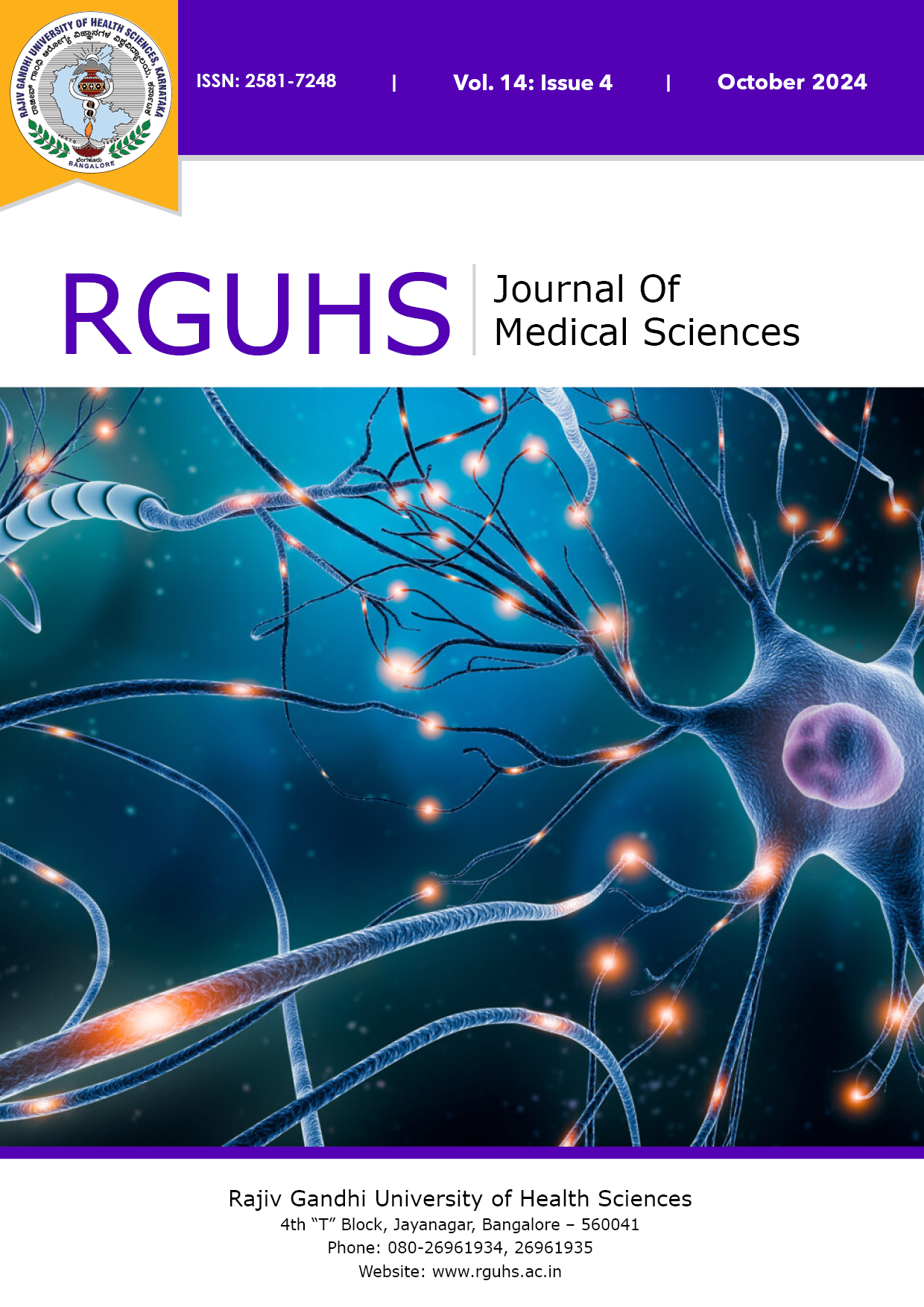
Abbreviation: RJMS Vol: 15 Issue: 1 eISSN: 2581-7248 pISSN 2231-1947
Dear Authors,
We invite you to watch this comprehensive video guide on the process of submitting your article online. This video will provide you with step-by-step instructions to ensure a smooth and successful submission.
Thank you for your attention and cooperation.
Naziya Begum 1, Vikram Gouda2 , Vijayanath 3
1Lecturer, Department of Bioscience, Navodaya College of Bioscience, Raichu
2Postgraduate Student, Department of Physiology, Navodaya Medical College, Raichur
3Associate Professor, Department of Physiology, Navodaya Medical College, Raichur

Abstract
Fitness is the ability of the organism to maintain the various internal equilibriums as closely as possible to the resting state during strenuous exercise and to restore promptly after exercise. The aim of the present study was to evaluate the fitness and correlate it with anti-oxidant levels of 50 male and female medical students in the age group of 18 to 25 years. Fitness was assessed by two step test (Master step). The antioxidant status was assessed by the Vitamin C and Vitamin E levels in the blood. Vitamin E values were significantly different but not the Vitamin C levels. Vitamin C levels did not influence the fitness levels in the same sex, but we found a significant difference between male and female young subjects. Thus, it is concluded that Vitamin E levels influence the fitness state of an individual.
Keywords
Downloads
-
1FullTextPDF
Article
none
Supporting File
References
none